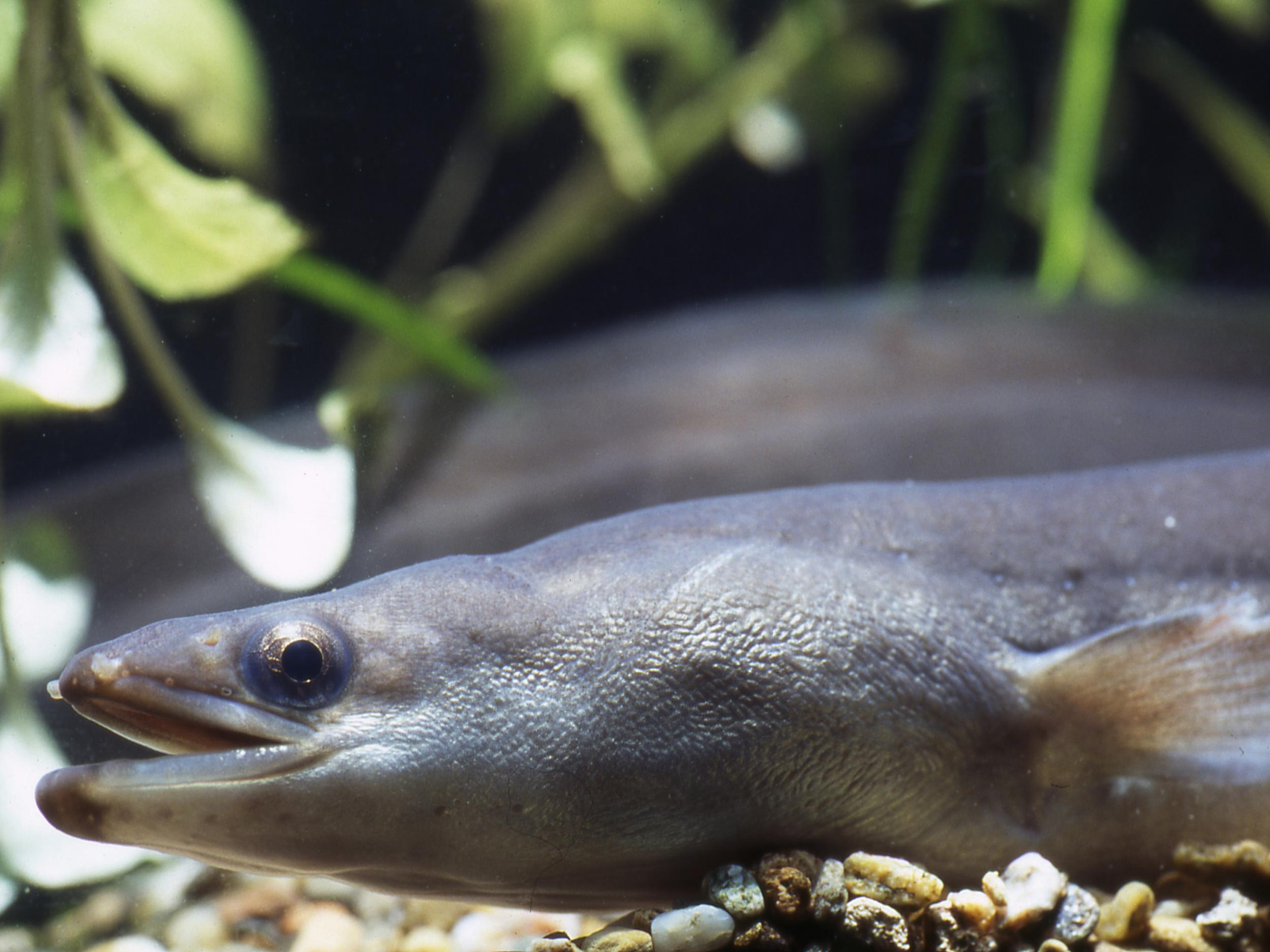Climate change pushing eels in Europe towards extinction, study shows
Numbers of the vulnerable fish have plummeted by over 90 per cent in recent decades

Your support helps us to tell the story
From reproductive rights to climate change to Big Tech, The Independent is on the ground when the story is developing. Whether it's investigating the financials of Elon Musk's pro-Trump PAC or producing our latest documentary, 'The A Word', which shines a light on the American women fighting for reproductive rights, we know how important it is to parse out the facts from the messaging.
At such a critical moment in US history, we need reporters on the ground. Your donation allows us to keep sending journalists to speak to both sides of the story.
The Independent is trusted by Americans across the entire political spectrum. And unlike many other quality news outlets, we choose not to lock Americans out of our reporting and analysis with paywalls. We believe quality journalism should be available to everyone, paid for by those who can afford it.
Your support makes all the difference.Climate change is likely to push Europe’s critically endangered eels even closer to extinction, a new study have revealed.
Populations have been in freefall for decades due to a combination of overfishing, pollution and dams being constructed along rivers, blocking their traditional migration routes.
Numbers of the once abundant fish have dropped by over 90 per cent since the early 1980s and now rising temperatures and acidic waters are posing yet another existential threat.
A new study conducted by scientists in Portugal tested the impact of the rising global temperatures on the survival and behaviour of young eels.
These “glass eels” – so-called due to their transparent bodies – were placed in different conditions to see how they would respond to a temperature increase of 4C and more acidic water, mimicking the environments expected under climate change by the end of the century.
When placed in warmer water, fewer of the young eels survived, but those that did were more active and appeared more willing to continue their migration.
This was countered by the impact of the acidic water, which appeared to dampen the eels’ innate desire to migrate towards freshwater.
This result echoed previous studies showing acidic water harming the sensory abilities of fish.
Publishing their findings in the Biology Letters journal, the scientists said they had revealed how near future conditions could soon trigger unexpected and unwelcome changes in eel populations.
“If greenhouse gases emissions to the atmosphere continue unabated and further conservation management policies are not considered in the near future, these stressors may, indeed, cause stocks disruption and push eels towards extinction,” said Dr Tiago Grilo, one of the scientists at the Marine and Environmental Sciences Centre behind the study.
Dr Reinhold Hanel, an eel expert at the Thunen Institute in Germany who was not involved in the study, said he “fully agreed” climate change is impacting eels.
He added that the new study supported previous work suggesting climate change was harming the eels by tampering with ocean currents along their migration routes or the Sargasso Sea where they spawn.
However, he also noted that for fish that travel more than 4,000 miles simply to reproduce, crossing both fresh and saltwater as they do, climate change was just one of many pressures on these vulnerable creatures.
“If you travel that far… you are at risk in many circumstances, and that is why it is the sum of these impacts that probably caused this decline,” he said.
Samuel Stone, head of fisheries and aquaculture at the Marine Conservation Society, said the research was a reminder of the “dire need” to recover depleted fish stocks.
“We are already seeing impacts of climate change on marine species and far more needs to be done to account for this in fisheries management,” he said.
Join our commenting forum
Join thought-provoking conversations, follow other Independent readers and see their replies
Comments